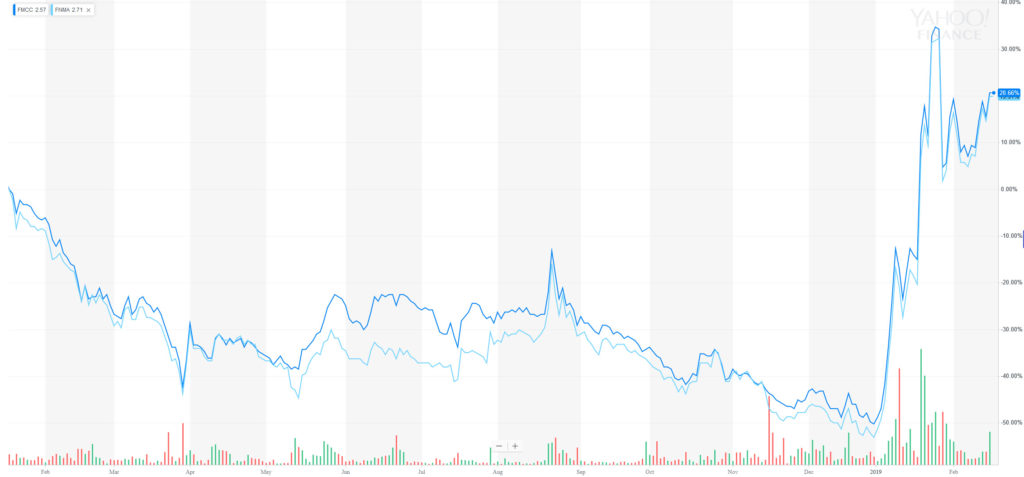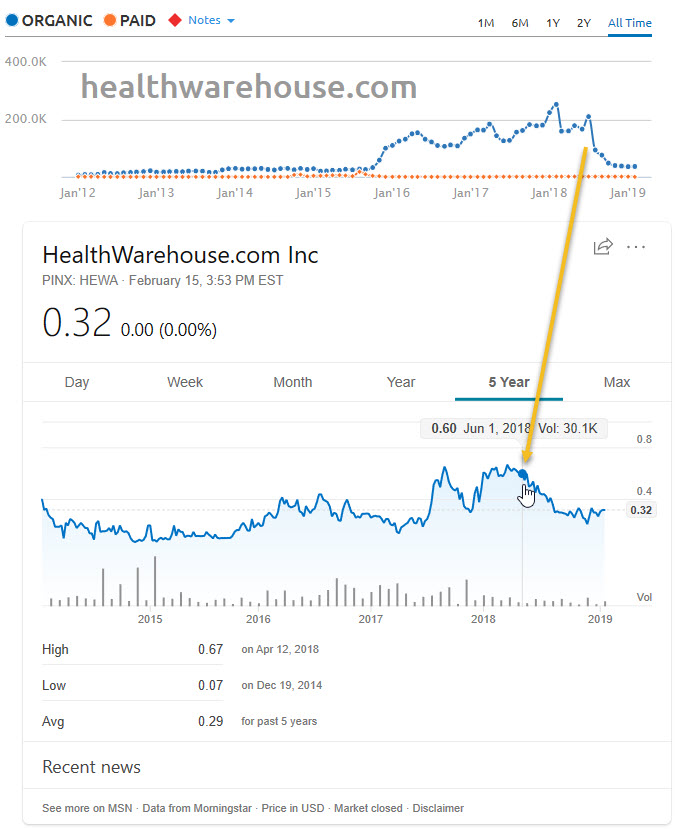I think most penny stocks are penny stocks for a reason – either they are failed businesses, scams, or have some other reason they remain publicly traded while having little to no economic value (based on their market price).
In some cases regulatory changes can cause formerly broken businesses to become once again viable. That is what some people are betting on with Fannie Mae (FNMA) & Freddie Mac (FMCC).

However, most penny stocks never break out of the category, or only do so for a scarce & fleeting bit of time. As much capital as there is in the world, if a penny stock had some sort of powerful strategic advantage it would in most cases quickly go private.
One penny stock I was curious about, but ultimately never touched, was Health Warehouse (HEWA). They currently trade at 32 cents a share & are valued at about $15.6 million.
They had absolutely fantastic rankings in Google about a year ago. The month their organic rankings fell off so did their stock price, giving up about half its value.

The reason I never bought any of their stock is the thing seemed so illiquid you would end up moving the market cap 10% or 20% if you were to invest enough in it for the returns to count for anything. And then if you thought you could boost the rankings of their property you would also have to invest quite a bit again, so it is something where you would probably need to invest about 6 figures into in order to see a worthwhile return, but that is a big chunk of change to put in a penny stock.
And the tough thing with search is the trend isn’t really your friend & no matter what your best efforts are, if an algorithm update moves against a site it can more than undo any work you’ve done.
“Google can’t help but being predatory in saying, well, you used to get all this traffic for free, our goal, over the last, now it’s about 10 years, has been to say, no, traffic is not going to be free. Those 10 blue links you used to see are now disappearing, so below the fold”
IAC Chairman Barry Diller
If your point of leverage & potential high returns come from the fact that you are overly indexed to the online ecosystem, any change in one of the core players can cause a steep decline in growth rates, sales volume, leverage with suppliers & profit margins. And online-only plays are ultimately playing against the clock as their offline analogs slowly adopt best practices to compete online.
